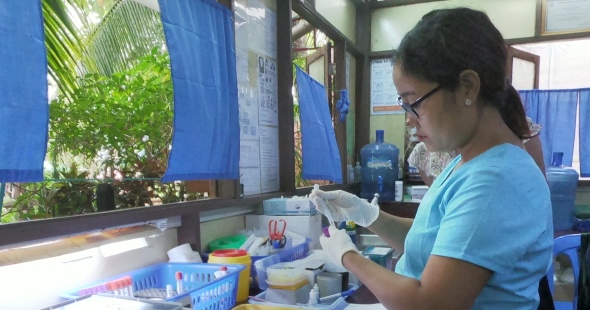Antimicrobial resistance

GOAL: Build access to AMR testing and surveillance to safeguard drugs and reduce mortality
Increased AMR is one of the top ten threats to public health according to WHO; it is the cause of severe infections, disease complications, longer hospital stays and increased mortality. There are currently 700,000 deaths every year due to drug-resistant strains of common bacterial infections, and it is estimated that this will increase to 10 million deaths per year by 2050 – with low- and middle-income countries (LMICs) being the most affected. Testing plays a key role in reducing AMR by improving diagnosis of infections to prevent unwarranted use of antibiotics, and to rapidly detect and contain resistant infections. The COVID-19 pandemic is causing significant setbacks in the fight against AMR. There is growing concern that many people with COVID-19 are being prescribed inappropriate antibiotics, which may be fuelling an increase in drug resistant infections, particularly in countries lacking antimicrobial stewardship (AMS) programmes and with limited access to diagnostic tools. The growth of AMR is expected to result in a 25% increase in healthcare costs in low-income countries and a 6% increase in high-income countries by 2050. AMS programmes are rudimentary or do not exist at all in most LMICs, and there is an acute need for accessible diagnostics for blood stream infections, especially those associated with neonatal sepsis as well as severe hospital-acquired infections. Data are critical for better patient management and the development of clinical guidelines, but there is currently a lack of both global and local AMR data.
Our focus is on preventing AMR development and mortality through developing and improving diagnostic systems.
Workstreams:
- Preserve existing and new antibiotics by supporting the development and enabling the use of point-of-care tests for gonorrhoea and chlamydia (NG/CT), and other sexually transmitted infections at primary care level
- Implement innovative AMR packages (diagnostic technologies, digital solutions, AMR data) to reduce the mortality rate in patients with severe infections in hospitals (including neonatal sepsis)
- Empower on-the-ground decentralized AMR surveillance efforts (including sequencing) to strengthen the One Health approach and improve use of local data
Indicative deliverables:
- 1–2 affordable point-of-care tests for NG/CT
- 1–2 field evaluation studies to inform WHO Prequalification on NG/CT point-of-care tests
- Demonstration studies for NG/CT point-of-care tests
- Digital decision support and data collection tools to support AMS programmes
- A simplified blood culture system adapted for LMICs to enable the use of point-of-care tests for AMR detection or price reduction for existing automated systems
- Demonstration studies on cost-effectiveness of bundled AMR diagnostic solutions for level two of the healthcare system, including digital solutions
- Support for the development of decentralized surveillance systems in 2 countries
Quick links

